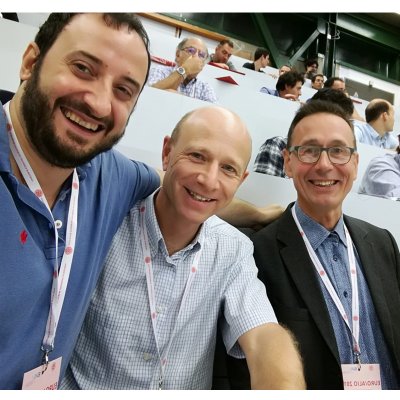My scientific curiosity and research interests in the Theory of Computation and Combinatorial Optimization range from graph theory, applied mathematics, approximation theory to combinatorial algorithms, discrete optimization, machine learning and (recently) statistical physics in connection with optimization problems.
I am interested in studying the theoretical insights of optimization problems, the design of algorithms of practical relevance, the bridges connecting theoretical and computational aspects and the intersections between multidisciplinary fields. My favorite problems are the Knapsack Problems but I am keen to explore any kind of problem.
My adventure started with an "out of the blue" e-mail that I sent to my (next) PhD tutor Federico Della Croce when I was living in Toronto in 2013. Federico believed in me although I had left the academic world for 6 years at that time and this was indeed a great turning point in my life.
Knapsack Problems constituted the topic of my PhD (2014-2016, a short video presentation is available at the following link) and gave me the amazing opportunity to meet the best experts for these problems and to work with some of them. Here it is a picture with me and my friends and colleagues Ulrich Pferschy and David Pisinger.
Theory of computation is a dynamic and multidisciplinary science producing fruitful collaborations among practitioners and researches from different disciplines such as computer scientists, physicists and mathematicians. I enjoy having the opportunity of studying theories and approaches coming from different fields and backgrounds. That's amazing!
For example, my favorite book in computer science is a book written not by computer scientists but by physicists, namely “The Nature of Computation” by Cristopher Moore and Stephan Mertens, simply a beautiful book.
I think that the most exciting aspect of being a researcher in this field is the beauty of discovery:
«A great discovery solves a great problem, but there is a grain of discovery in the solution of any problem. Your problem may be modest, but if it challenges your curiosity and brings into play your inventive faculties, and if you solve it by your own means, you may experience the tension and enjoy the triumph of discovery.» George Pòlya
In the following video (from youtube), a beatiful introduction to Computer Science and Computational Complexity.
